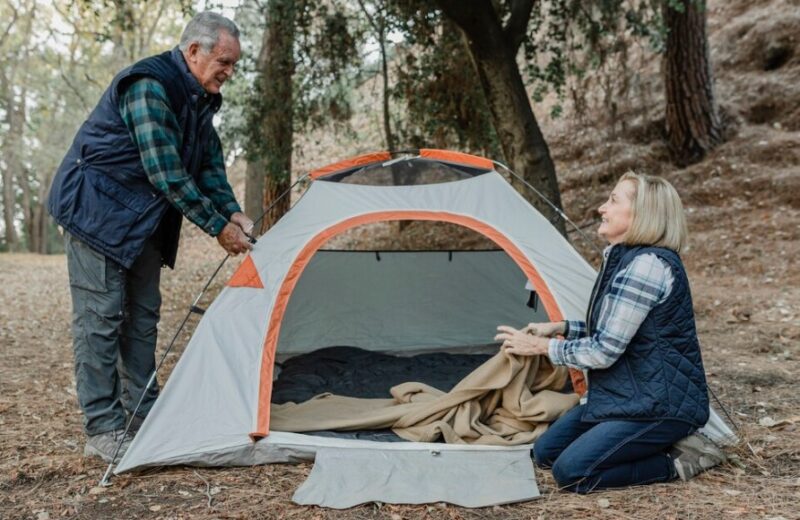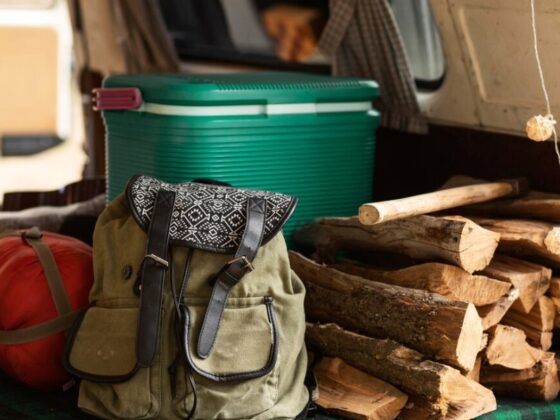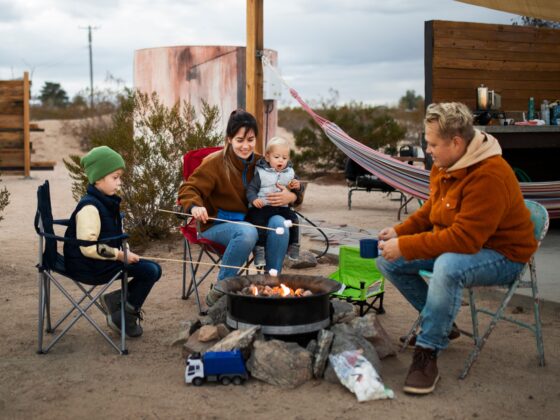Camping tents are an essential piece of equipment for any outdoor enthusiast. They provide a cozy and protected space to rest and recharge during your outdoor adventures. Whether you’re planning a weekend getaway or an extended backcountry expedition, choosing the right size camping tent can make all the difference in ensuring a comfortable and enjoyable experience.
In this comprehensive guide, we’ll explore the factors to consider when selecting the perfect camping tent, delve into the various types of tents available, and offer valuable tips to help you find the ideal pitch for your next camping trip.
Factors to Consider When Choosing the Right Size Camping Tent
When it comes to selecting the right size camping tent, there are several key factors to take into account:
- Number of Occupants: The first and most crucial factor is the number of people who will be using the tent. Tents are typically categorized by their capacity, such as 2-person, 4-person, or 6-person tents. It’s essential to choose a tent that can comfortably accommodate your group, allowing for personal space and storage.
- Intended Use: Consider the primary purpose of your camping trip. Are you planning a family outing, a solo adventure, or a backpacking expedition? The intended use of the tent will influence the size, weight, and features you’ll need.
- Tent Dimensions: Examine the dimensions of the tent, including the floor space, height, and vestibule (the covered area outside the main tent). Ensure that the tent provides enough room for you and your gear, as well as allowing for comfortable movement and storage.
- Seasonality: Tents are designed for different seasons, with some better suited for warm weather and others more suitable for colder climates. Consider the weather conditions you’ll be facing and choose a tent that can withstand the elements.
- Weight and Portability: If you’ll be carrying your tent long distances or hiking with it, the weight and portability of the tent become crucial factors. Lightweight and compact tents are often preferred for backpacking, while larger, heavier tents may be more suitable for car camping.
By carefully considering these factors, you can ensure that you select a camping tent that perfectly meets your needs and provides a comfortable and enjoyable camping experience.
Different Types of Camping Tents
Camping tents come in a variety of shapes, sizes, and designs to cater to different camping needs. Here are some of the most common types of camping tents:
- Dome Tents: Dome tents are a popular choice for their sturdy, freestanding design and good headroom. They are versatile and can be used for a range of camping activities, from family outings to solo adventures.
- Cabin Tents: Cabin tents are known for their spacious, vertical walls, providing ample headroom and floor space. They are ideal for family camping trips or group gatherings, offering a comfortable and roomy living space.
- Backpacking Tents: Backpacking tents are designed to be lightweight and compact, making them perfect for long-distance hikes and minimalist camping. They often sacrifice some interior space for reduced weight and easier portability.
- Inflatable Tents: Inflatable tents, also known as air tents, use air-filled beams or poles instead of traditional poles. They are quick and easy to set up, and their unique design can provide a more spacious and stable camping experience.
- Tunnel Tents: Tunnel tents feature a streamlined, low-profile design that is well-suited for windy or exposed campsites. They offer good weather protection and are often used for group camping or extended trips.
Regardless of the type of tent you choose, it’s essential to consider the specific features and benefits that align with your camping needs and preferences.
Importance of Tent Pegs and Their Impact on Tent Stability
Tent pegs, also known as stakes, play a crucial role in the stability and performance of your camping tent. These unsung heroes of the camping world are responsible for anchoring your tent to the ground, ensuring it withstands the elements and stays firmly in place.
| Tent Peg Material | Advantages | Disadvantages |
|---|---|---|
| Aluminum | Lightweight, durable, and corrosion-resistant | May bend or break in hard or rocky ground |
| Steel | Sturdy and able to withstand tough ground conditions | Heavier than aluminum, can rust over time |
| Plastic | Inexpensive, lightweight, and easy to use | Less durable and may not hold up well in challenging terrain |
| Titanium | Extremely lightweight, strong, and corrosion-resistant | More expensive than other materials |
The type of tent pegs you choose can have a significant impact on the overall stability and performance of your camping tent. Sturdy, well-placed tent pegs can help prevent your tent from collapsing or being blown away in strong winds, ensuring a secure and comfortable camping experience.
When selecting tent pegs, consider the ground conditions you’ll be camping on, the weight and size of your tent, and your personal preferences. Investing in a high-quality set of tent pegs can be a game-changer, providing the necessary support and stability to keep your tent firmly in place, no matter the weather conditions.
Benefits of Using a Heavy-Duty Camping Tent
While lightweight and compact tents are popular for their portability, there are several compelling reasons to consider using a heavy-duty tent:
- Durability and Longevity: Heavy-duty tents are typically constructed with more robust materials, such as thick canvas or heavy-duty polyester, making them more resistant to wear, tear, and weathering. This can extend the lifespan of your tent, ensuring it withstands the rigors of repeated use.
- Weather Protection: Heavy-duty tents are often designed to provide superior weather protection, with features like waterproof coatings, reinforced seams, and sturdy pole structures. They can better withstand heavy rain, strong winds, and even light snow, keeping you dry and comfortable even in challenging conditions.
- Spaciousness and Comfort: Larger, heavier-duty tents tend to offer more interior space, allowing for greater comfort and the ability to accommodate more people or gear. This can be particularly beneficial for family camping trips or extended stays in the great outdoors.
- Stability and Anchoring: The robust construction of heavy-duty tents, coupled with their ability to accommodate more substantial tent pegs and guy lines, contributes to their overall stability and resistance to being blown away or collapsing in high winds.
- Versatility: Heavy-duty tents can be used for a variety of camping scenarios, from car camping to base camp setups in remote locations. Their durability and weather-resistant qualities make them a reliable choice for a wide range of outdoor adventures.
While heavy-duty tents may be heavier and bulkier to transport, the benefits they offer in terms of durability, weather protection, and overall camping experience can make them a worthwhile investment for many outdoor enthusiasts.
Tips for Finding the Perfect Pitch for Your Camping Tent
Choosing the right size camping tent is only half the battle; finding the perfect pitch for your tent is equally important. Here are some tips to help you select the ideal campsite and set up your tent for a comfortable and enjoyable camping experience:
- Site Selection: When choosing a campsite, look for level ground that is free from sharp rocks, sticks, or other debris that could puncture your tent. Avoid low-lying areas that may be prone to flooding or pooling water.
- Orientation: Consider the direction of the wind and sun when positioning your tent. Align the tent’s entrance away from the prevailing wind direction to minimize drafts and rain entering the tent.
- Drainage: Ensure the campsite has adequate drainage to prevent water from pooling around your tent during heavy rainfall. Slightly sloping ground can help channel water away from your tent.
- Shade and Ventilation: Look for a spot that offers some shade, either from trees or a natural landform, to keep the tent cooler during the day. Proper ventilation is also crucial, so choose a site that allows for good air circulation.
- Accessibility: Select a campsite that is easily accessible, particularly if you’ll be carrying heavy gear or have limited mobility. Avoid steep, rocky, or overgrown areas that could make it difficult to reach your tent.
- Guy Lines and Tent Pegs: Properly securing your tent with sturdy guy lines and tent pegs is essential for maintaining stability and preventing the tent from collapsing or blowing away. Invest in high-quality tent pegs and use them in conjunction with guy lines for maximum stability.
By carefully considering these factors and taking the time to find the perfect pitch for your camping tent, you can ensure a comfortable and enjoyable camping experience, no matter the weather conditions or terrain.
Discover the perfect camping tent for your next outdoor adventure. Browse our wide selection of high-quality, durable tents and accessories to find the ideal setup for your needs. Visit our website today to learn more!
Conclusion: Finding Your Perfect Camping Tent Size
Choosing the right size camping tent is a crucial decision that can make or break your outdoor experience. By considering the factors outlined in this guide, such as the number of occupants, intended use, tent dimensions, seasonality, and weight and portability, you can find the perfect tent that meets your specific needs.
Remember, the type of tent you select, from dome to cabin to backpacking, can also significantly impact your camping comfort and convenience. Additionally, the importance of sturdy tent pegs and a heavy-duty tent construction cannot be overstated, as they contribute to the overall stability and weather protection of your camping setup.
By following the tips for finding the perfect pitch for your tent, you can ensure a secure and comfortable camping experience, no matter the conditions. With the right-sized tent and a well-chosen campsite, you’ll be well on your way to creating unforgettable memories in the great outdoors.
So, whether you’re planning a family adventure or a solo backpacking trip, take the time to carefully consider your camping tent needs and find the perfect pitch for your next outdoor excursion. Happy camping!



